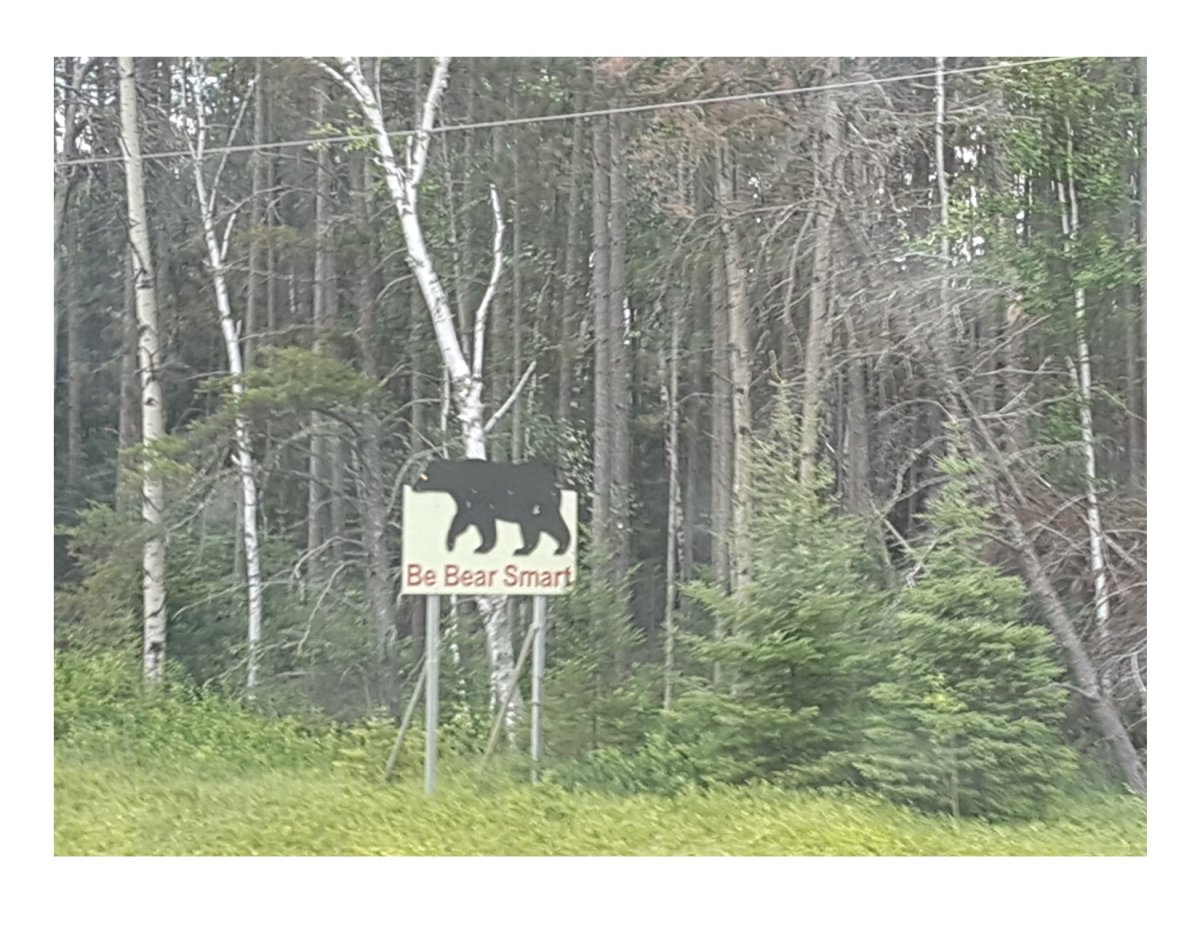With our love for the outdoors and the miles miles of wilderness to be explored across Manitoba, wildlife encounters are bound to happen.

Black bear sightings, and attacks, happen every summer. Even people who take necessary precautions can be caught unaware, by a bear.
On July 21, an eight-year-old girl received scratches to her face when a black bear swiped her tent. The girl was camping with her family in the back country at South Cross Lake in the Whiteshell.
Despite hanging their food away from the campsite in a bear-resistant container, the bear still attacked the tent as the family slept. The dad was able to scare the bear away, at which time the family grabbed their essentials, warned neighbouring campers, then jumped in their canoe to get back to their car.
The attack happened in the same general area as an incident earlier in the month, when a hiker on the Mantario Trail was bitten on the leg by a bear.
Luckily, in both cases, the victims suffered only minor injuries.
Janine Stewart, a wildlife conflict biologist, said it seems the people involved in these attacks did a lot of the right things. She said it is always best to prevent encounters, adding the most important part of being bear aware is being prepared.
Prevention
“Things to keep in mind if you are going to go tenting in the back country is to be prepared,” Steward said.
Everyone should have bear-resistant containers to store food, as well as anything that might attract a bear.
“Attractants are not just food. Non-typical attractants could also be toothpaste or toiletries. Anything with a scent that could be perceived as potential food for an animal could be an attractant.”
Stewart said it is difficult to be vigilant when you are sleeping, but while travelling, most people know to make noise and carry bear-deterrent spray.
“Hand clapping is a great way to make a lot of noise,” she said, adding that people can also use a whistle, air horn or rattler (pebbles in a tin can) when in bear country to alert a bear to your presence.
WATCH: Brandon Horrell from Cabela’s shares tips on how to stay safe while camping or enjoying the outdoors

Encounters
Stewart said the number one rule if you come upon a bear is to stop, remain calm and assess the situation.
Any action you take after that will depend on what the bear does.
If the bear doesn’t seem to know you are there, back away slowly and leave.
If you are confident the bear sees you and shows signs that it is stressed — huffing, salivating, pacing — keep an eye on the animal and talk to it calmly. Stewart says you should let it know that you are human, continue talking to let it know that you are not a threat, and slowly exit the area. You should never run.
She said you should always keep your eye on the bear so you can see if its behaviour changes.
RELATED: Wildlife in the city – what to do if you find an ‘abandoned’ animal
The province of Manitoba website includes Bear Smart tips, including:
- Dogs can serve as an early-warning system for detecting the presence of bears, but should be kept on a leash at all times. A poorly trained dog may excite a bear resulting in the bear following the dog back to its owner.
- Travel with a friend. Or tell someone where you will be.
- Never let children straggle behind or rush ahead.
 Make your presence known by any means available to you. Sight (waving your arms slowly) and/or sound (singing, clapping hands, talking in a calm voice) are good ways. Don’t whistle, as it may resemble an animal’s call.
Make your presence known by any means available to you. Sight (waving your arms slowly) and/or sound (singing, clapping hands, talking in a calm voice) are good ways. Don’t whistle, as it may resemble an animal’s call.- Do not use audio players with headsets, headphones or earbuds.
- Do not use cosmetics that emit strong fragrances.
Always be aware of your surroundings and watch for bear signs: tracks, droppings, turned-up stumps and claw marks in trees.
Remember that bears are attracted to food sources, especially berry patches and animal remains.
Remember too, that bear encounters don’t just happen in the wilderness, as residents of a Transcona neighbourhood found out June 5.
WATCH: Conservation officers were called in to deal with a bear in Transcona
-_TOR1CK03_848x480_1248940099896.jpg?w=1040&quality=70&strip=all)




Comments